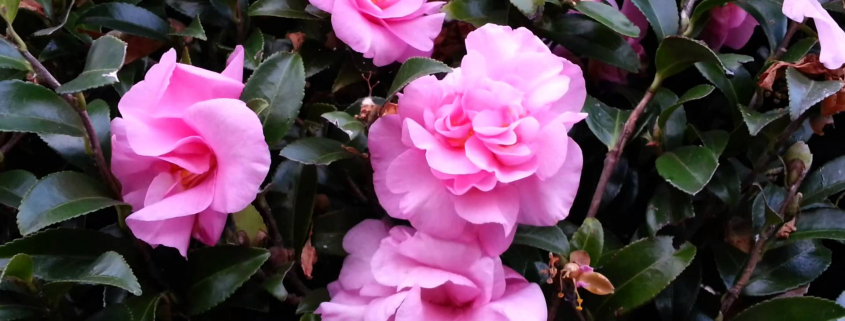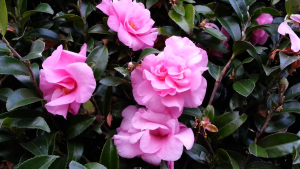Autumn Ramblings
Well, here we are in another season, and autumn brings with it the start of the cooler days and nights and the perfect time for gardening.
There will be plenty of things to do with new planting, whether tree, shrub, perennial or vegetable and flower seedlings.
I am often asked, “Which is the best season to plant trees and shrubs into the garden?”
Being a nurseryman, I will say any time is good, as long as you maintain the plants with mulch and water if planting in the warmer months.
Generally, though, autumn is the most desirable season, as the day temperatures are lower, therefore lower transpiration rates, and the soil is still warm enough to allow the roots to establish before the winter sets in. The plant will then rest through the winter and when the first warm days of spring arrive, the plant has already settled in and new growth will commence immediately.
Autumn being a perfect time to plant, consideration should be given to adding some interesting new plants to your garden.
In the shrub department you cannot go past the Camellia Sasanqua range. These beautiful autumn-flowering plants come in several forms, from tall shrubs to groundcovers. Their colours are usually soft pinks and whites, with some lovely crimson and red forms thrown in for good measure.
They have both single and double forms and the groundcovers, MargeMiller and Snow,can be planted either as a groundcover or do very well in a pot. Use a premium potting mix if potting and fertilise regularly with a liquid or slow release camellia/azalea fertiliser.
The taller varieties make an ideal screen-planting or hedge and will tolerate a full sun position. They are generally pest and disease free apart from an occasional infestation of aphid that is easily controlled with a systemic synthetic insecticide.
Another great addition to the garden for autumn flowering is the beautiful Japanese windflower (Anemone Hupehensis). This lovely perennial prefers a site that receives some protection from the hot summer sun as any dry stress during summer will reduce the development of flowers.
They come in colours of white, pink and dark pink and in single and double forms.
Autumn also brings with it the commencement of plantings for the winter vegetable garden and also the autumn through to spring flower garden.
The vegetables to plant now will be all the cabbages and cauliflowers, peas, carrots, parsnips and turnips along with leafy greens like winter lettuce, spinach and so on. The list is endless.
In the flower garden, varieties including pansy, viola, primula, stocks, poppies and wallflowers to name a few can also be planted.
Prepare the soils for both vegetable and flower seedlings with some animal manure, well forked through and watered in with a combination fish and seaweed fertiliser. This will get them started well, as natural plant hormones in the fertiliser will reduce transplant shock.
Remember, as I always mention in most articles, to mulch all of your plantings with a good mulch like sugar cane or lucerne mulch. This will keep the plants moist and the weed competition down.
A few other jobs in the garden like dead-heading perennials and roses will encourage them to have one last flower before winter. Do an autumn feed of lawns with a complete lawn food to give them a boost and to tide them over for winter. Also, as the days cool, keep an eye out for a late infestation of aphid.
The things to do in the autumn months are endless, so get out there and make a difference.
Happy gardening.



